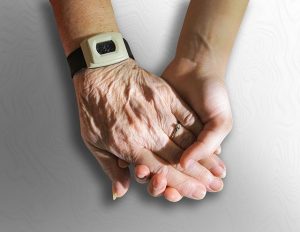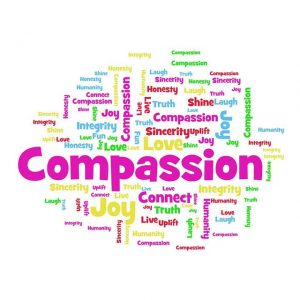 As caregivers, first responders, and health providers know well, empathetic burnout is waiting to happen when we directly take on the suffering of others, particularly for long periods of time. With awareness, we can instead bring “rational” empathy into our work and lives. This is where we try to understand what another person is going through, but we step back and ask, “How can I help?” rather than enlisting ourselves to the task of fixing the suffering.
As caregivers, first responders, and health providers know well, empathetic burnout is waiting to happen when we directly take on the suffering of others, particularly for long periods of time. With awareness, we can instead bring “rational” empathy into our work and lives. This is where we try to understand what another person is going through, but we step back and ask, “How can I help?” rather than enlisting ourselves to the task of fixing the suffering.
Empathetic vs. Compassion
 Empathy is our ability to take the perspective of another and to feel their emotions. Research shows that we are naturally empathetic. The brain’s mirror neurons activate equally when we personally experience pain and when we see someone else experiencing pain. We care about caring and we have a natural, built-in capacity for empathy. And while empathy is a compassionate response to the suffering of another, we sometimes don’t establish healthy boundaries or we take in more suffering than we are psychologically equipped for. So what do we do when we feel we are heading toward empathetic overload?
Empathy is our ability to take the perspective of another and to feel their emotions. Research shows that we are naturally empathetic. The brain’s mirror neurons activate equally when we personally experience pain and when we see someone else experiencing pain. We care about caring and we have a natural, built-in capacity for empathy. And while empathy is a compassionate response to the suffering of another, we sometimes don’t establish healthy boundaries or we take in more suffering than we are psychologically equipped for. So what do we do when we feel we are heading toward empathetic overload?
Shift to Compassion
 Best-selling author Elizabeth Gilbert provides a helpful distinction between empathy and compassion. She suggests that empathy says, “You’re suffering and now I’m suffering because you’re suffering” whereas compassion says “I’m not suffering right now, you are. I see your suffering and I want to help you.” Compassion includes awareness of the suffering of another, and it involves an instinctive desire to see that situation relieved. But wise compassion means that we take into account the whole situation (including our current state, our reasons for helping and our needs) before we jump into helping others. There are situations in which continually acting upon our desire to help is not physically or emotionally safe. In these cases, we can still act compassionately, be we need to explore healthy boundaries.
Best-selling author Elizabeth Gilbert provides a helpful distinction between empathy and compassion. She suggests that empathy says, “You’re suffering and now I’m suffering because you’re suffering” whereas compassion says “I’m not suffering right now, you are. I see your suffering and I want to help you.” Compassion includes awareness of the suffering of another, and it involves an instinctive desire to see that situation relieved. But wise compassion means that we take into account the whole situation (including our current state, our reasons for helping and our needs) before we jump into helping others. There are situations in which continually acting upon our desire to help is not physically or emotionally safe. In these cases, we can still act compassionately, be we need to explore healthy boundaries.
Is this healthy compassion?
- Look carefully at your motivations. Are you helping because you genuinely care or because you feel obligated? If you are not fully invested, then you are at higher risk of burnout and resentment.
- Ask yourself how you feel when you help. You should feel good when you are caring for someone. If your efforts feel more draining than inspiring, you might want to reevaluate how you are helping.
- Consider if you are fostering your own well-being at the same time you are helping. If you aren’t caring for yourself but you are giving a lot of energy to another, you may find yourself with little fuel in your tank for future efforts.
The choice to be kind and generous directly influences our own happiness But it can also lead to self-sabotage if healthy boundaries are not put in place. As American writer and psychoanalyst Clarissa Pinkola Estes writes, “Ours is not the task of fixing the entire world all at once, but of stretching to mend the part that is within our reach.” It is through wise compassion that we can bring whatever care is needed to whomever needs it, including ourselves.
Sood, A. (2013). The Mayo Clinic guide to stress-free living. Da Capo Lifelong Books.
Lama, D., Tutu, D., & Abrams, D. (2016). The book of joy: Lasting happiness in a changing world.

